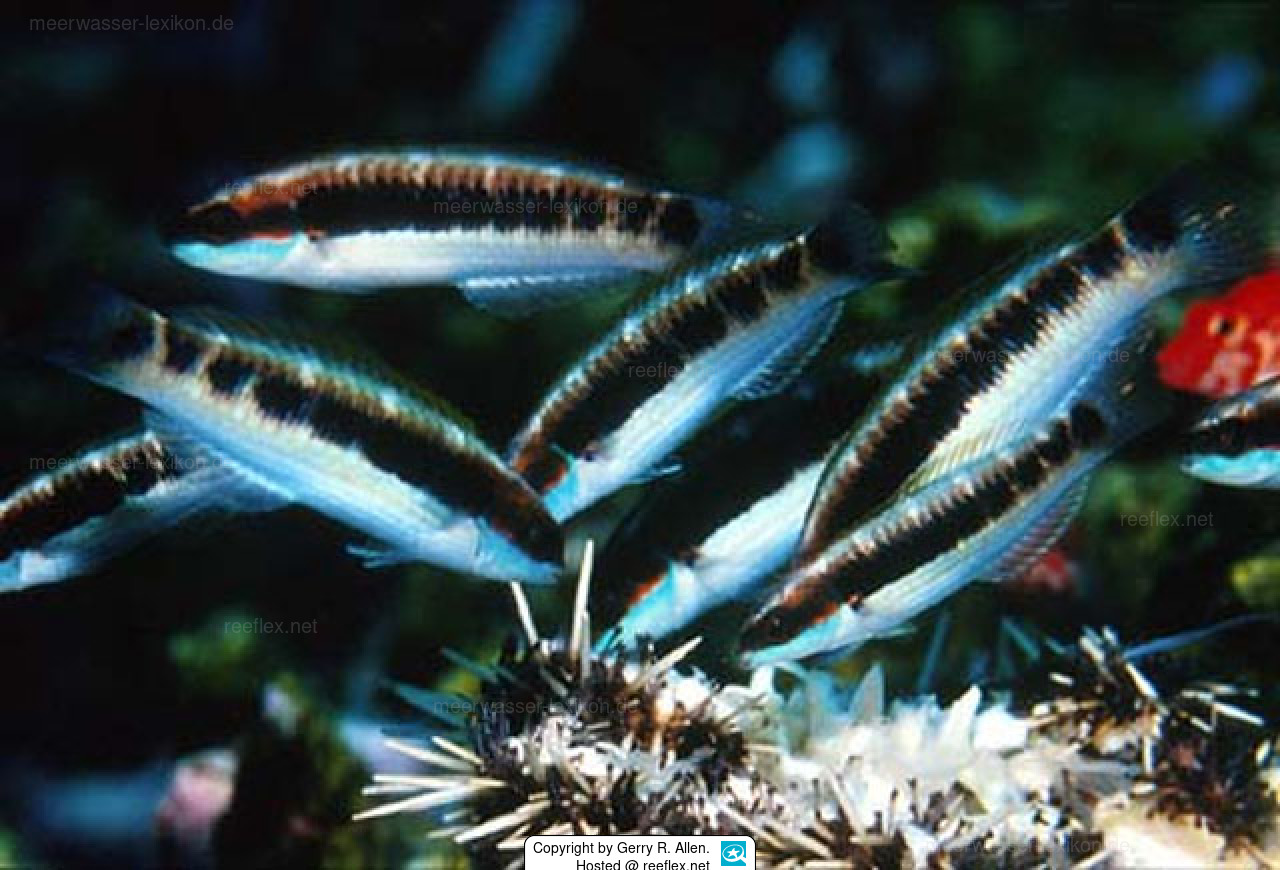Info
Allen, 1995
Special thanks for the first three photos to Dr. Gerry R. Allen!
This wrasse was named in honor of Dr. D. Ross Robertson of the Smithsonian Tropical Research Institute for his contributions to the knowledge of reef fishes of both the eastern Pacific and Caribbean regions.
Classification: Biota > Animalia (Kingdom) > Chordata (Phylum) > Vertebrata (Subphylum) > Gnathostomata (Superclass) > Pisces (Superclass) > Actinopterygii (Class) > Perciformes (Order) > Labridae (Family) > Thalassoma (Genus) > Thalassoma robertsoni (Species)
Jumping guard
A jumping guard prevents (nocturnal) fish from jumping out.
Wrasses, blennies, hawkfishs and gobies jump out of an unprotected tank in fright if their night rest is disturbed, unfortunately these jumpers are found dried up in the morning on carpets, glass edges or later behind the tank.
https://www.korallenriff.de/en/article/1925_5_Jump_Protection_Solutions_for_Fish_in_the_Aquarium__5_Net_Covers.html
A small night light also helps, as it provides the fish with a means of orientation in the dark!
Special thanks for the first three photos to Dr. Gerry R. Allen!
This wrasse was named in honor of Dr. D. Ross Robertson of the Smithsonian Tropical Research Institute for his contributions to the knowledge of reef fishes of both the eastern Pacific and Caribbean regions.
Classification: Biota > Animalia (Kingdom) > Chordata (Phylum) > Vertebrata (Subphylum) > Gnathostomata (Superclass) > Pisces (Superclass) > Actinopterygii (Class) > Perciformes (Order) > Labridae (Family) > Thalassoma (Genus) > Thalassoma robertsoni (Species)
Jumping guard
A jumping guard prevents (nocturnal) fish from jumping out.
Wrasses, blennies, hawkfishs and gobies jump out of an unprotected tank in fright if their night rest is disturbed, unfortunately these jumpers are found dried up in the morning on carpets, glass edges or later behind the tank.
https://www.korallenriff.de/en/article/1925_5_Jump_Protection_Solutions_for_Fish_in_the_Aquarium__5_Net_Covers.html
A small night light also helps, as it provides the fish with a means of orientation in the dark!







 Dr. Gerald (Gerry) Robert Allen, Australien
Dr. Gerald (Gerry) Robert Allen, Australien
































